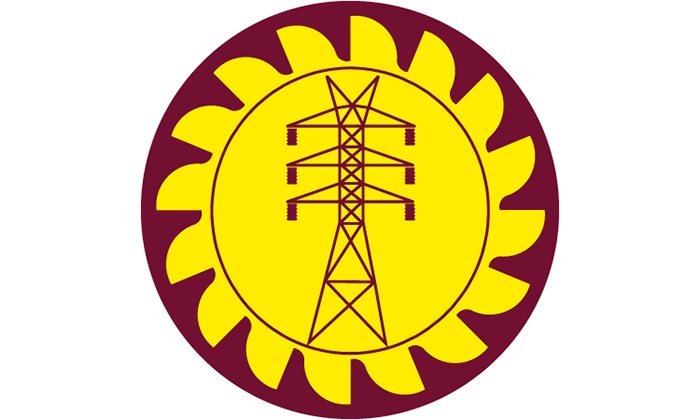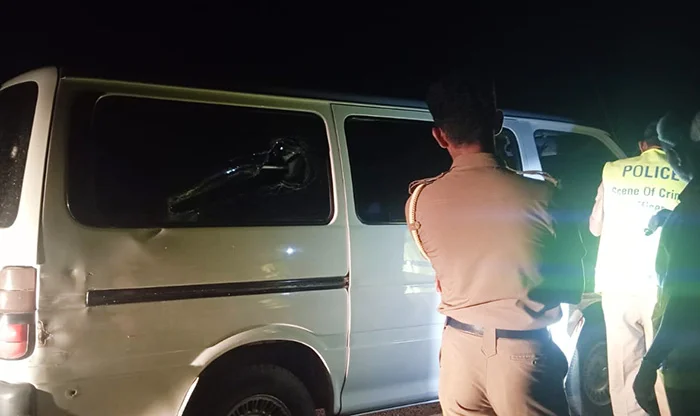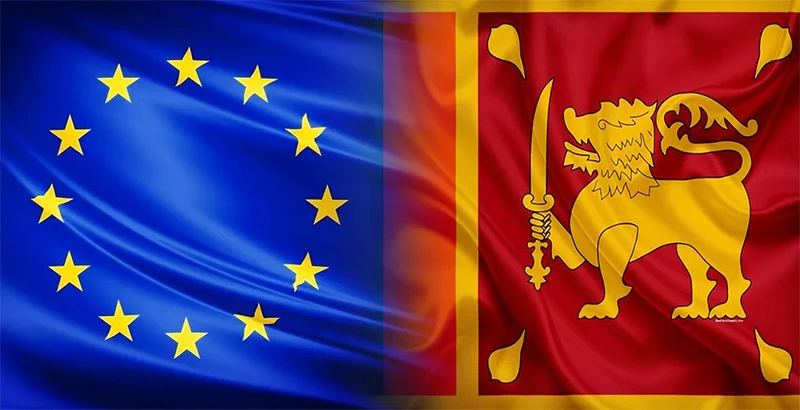News
Wide ranging rackets benefiting CEB engineers

By Ifham Nizam
The Ceylon Electricity Board implements most of its power transmission and distribution infrastructure development projects like the construction of new transmission lines, transmission and distribution substations, etc., using loan funds obtained from international lending agencies such as the Asian Development Bank (ADB) and Japan International Cooperation Agency (JICA).
These “concessionary” loans are guaranteed by the government, and projects funded by those loan packages are implemented through specially set up project management units (PMUs).
Engineers attached to PMUs are given special facilities and monetary incentives on the understanding that they will work outside normal working hours and weekends to complete their projects on time and within the allocated budget.CEB often justifies these projects for priority financing citing “great national importance” and the critical needs to improve the power transmission and distribution infrastructure of the country.
Almost all of these project titles carry the words like “green energy”, “clean energy”, “green power”, etc., signifying these investments are primarily aimed at using renewable energy.
However, according to a senior official of the Ministry of Power & Energy, these projects are seldom completed within the given time period or budget. Because of this reason not only the expected benefits of these investments are often lost to the country, but the government incurs heavy losses by way of commitment fees paid to lending agencies.
Once project funds are committed through a loan agreement, the government has to pay this fee to the lending agency, generally computed as a percentage of the loan amount or the “commitment amount”. It is a significant burden to the government, especially in a situation where there is a severe shortage of foreign currency.
If the loan funds are disbursed within the original term of the loan, this “front end fee” is charged at a lower percentage. Hence, when CEB does not complete projects in time, the government ends up paying a higher commitment fee, and is also forced to seek an extension to the original loan disbursement period, thus incurring further costs.
Even more disturbing than long delays in project completion is that some completed projects have turned out to be wasteful investments of foreign funds given to the country.It is understood that the former CEB Chairman M. M. C. Ferdinando had questioned why the new 132kV transmission line between Ambalangoda and Galle, which was completed in 2017 at a cost of Rs. 1,500 million, remained unserviceable to date.
The Sunday Island understands that CEB’s System Control Center is able to switch on this transmission line only when the Samanalawewa Hydropower Plant is running at full capacity.This project had been billed by CEB’s transmission planners as a high-priority investment and solution for the serious transmission bottlenecks in the southern network of the country. Southern areas had been experiencing serious transmission capacity restrictions for decades.It is understood that the CEB General Manager has responded to the Chairman’s inquiry by stating that the commissioning of several new transmission lines that are presently under construction would make the Ambalangoda-Galle transmission line operational.
The 220kV transmission line from Pannipitiya to Polpitiya via Padukka is another example of a costly planning blunder by the CEB. Construction of this long transmission line commenced in 2015 but was delayed owing to many problems, including public protests and court cases filed by some landowners.However, when this ADB-funded project was eventually completed in late 2021 (after a delay of over five years), it has been discovered the power flows in the wrong direction when the line is switched on, causing overloading of the Pannipitiya substation.Hence, this transmission line also remains idle presently. It is understood that CEB planners have explained that power would flow in the right direction once several other transmission lines (being constructed under different loan packages, and already delayed by many years) are completed.
The then CEB General Manager taking part in a national television discussion following the countrywide power outage on August 17, 2020, explained that the unavailability of this critical transmission line was a major contributing factor to CEB’s inability to restore supply for many hours.Another example of colossal waste of funds is the transmission substation at Kappalthurai in the eastern province that has cost the country over Rs. 2,500 million of ADB loan funds. Since there is no high demand for electricity or no future growth in demand in the area, this installation will be idle for the foreseeable future.
According to CEB employees, the existing Trincomalee substation, which is situated about 11 km from this new substation, has ample capacity to serve the electricity demand in the area for many years to come. In the meantime, CEB has made a large investment in increasing the capacity of the Trincomalee substation as well.It is also understood that CEB’s Projects Division has been maintaining several non-functional PMUs for years, spending large sums of money on rented project offices and large project staff, even when no funding has been secured for relevant projects.
CEB employees complain that project directors and their engineers attached to these “white elephants” are allowed to enjoy all benefits, including project allowance (an additional amount equal to one-third of monthly salary) and luxury SUVs because most of them hold important positions in the powerful CEB engineers’ union.They claim that the CEB management never holds to account any project manager responsible for long delays, but they are allowed to continue to enjoy all the perks. According to a senior engineer who works as a consultant on project-related work, this guarantee of “job security” acts as a strong incentive for the project engineers to prolong their projects.CEB employees believe another reason for this lackadaisical attitude of CEB top management is that foreign-funded projects have long been a steady source of luxury vehicles for CEB engineers.
Most vehicles used by top CEB engineers including the General Manager have been provided under different foreign-funded projects, as the existing government guidelines will not allow the purchase of such high-end SUVs having large engine capacity including premium European makes like Audi and Mercedes Benz for government officials.CEB employees complain that the Ministry of Power & Energy generally turns a blind eye to these irregularities mainly because the majority of project managers and their project engineers are top officials of the powerful engineers’ union.
They allege that even the Public Utilities Commission of Sri Lanka (PUCSL,) which has the legal obligation to ensure CEB will not make unnecessary or wasteful investments in its transmission infrastructure, has never questioned CEB regarding assets that are idling for many years after spending billions of rupees of public money.
News
Police open fire on speeding van in Jaffna: 17-year-old driver killed

Police are investigating the circumstances under which its men, manning a checkpoint, opened fire on a vehicle, killing a 17-year-old boy in Jaffna, in the early hours of yesterday (10).
Police said that they opened fire at a van that ignored orders to stop at the checkpoint. The dead youth was identified as Albino Arul Bias, a resident of Vaddukoddai. Bias was identified as the driver of the vehicle.
Sources said that the incident happened at a checkpoint at the Alaipiddy junction, along the Jaffna–Urkavalthurai road.
After the vehicle was brought to a stop, the teenage boy, who had been inside, was found to have sustained critical gunshot injuries. He was subsequently transported to the Jaffna Teaching Hospital for emergency treatment. Despite medical intervention, he later succumbed to his injuries.
Two other individuals, who were inside the vehicle, have been taken into custody by police. Authorities have stated that one of those arrested is from the Vaddukoddai area, while the other is from Nallur.
Assistant Superintendent of Police, Attorney-at-Law, F. U. Wootler said that the men had no option but to open fire as they were suspicious of the vehicle. “The incident happened around 1 am in the morning and their failure to heed the police order couldn’t be justified under any circumstances,” the spokesman said (SF)
News
HRCSL employee protests demanding justice, takes swipe at Presidential Secretariat

‘There is no basis for her accusations’- HRCSL
By Shamindra Ferdinando
Permanent employee of Human Rights Commission of Sri Lanka (HRCSL) Ayanthini Shiromini yesterday (10) protested outside its main office at No 14, R.A. de Mel Mawatha, formerly Duplication road, in a bid to draw the attention of the Presidential Secretariat to her plight.
At the protest site, Shiromini told The Island that she had been relentlessly targeted since 2018 and the situation took a turn for worse in 2023 over her protest against the appointment of a particular member to an internal interview board and an incident pertaining to a complaint lodged against the then IGP Deshabandu Tennakoon.
Responding to a query regarding the 2018 developments, Shiromini said that she met with a near fatal accident in 2014 while engaged in official duty and depended on crutches for eight years and was recommended by a medical board to grant the opportunity for suitable work. Mother of two and post graduate social science in Kelaniya University and human rights at the Colombo University alleged that the HRCSL changed her status regardless of the recommendation made by the medical board.
Having failed to convince the top HRCSL administration to treat her fairly, Shiromi said that she sought the intervention of the Presidential Secretariat in late July 2025 to rectify the problems experienced by her.
She alleged that the Presidential Secretariat sided with the HRCSL and did absolutely nothing. “Instead of taking remedial measures, the Presidential Secretariat sent the file submitted by me against the HRCSL top management back to them. They shouldn’t have done that,” Shiromini said.
Shiromini staged a protest opposite HRCSL main office on the world human rights day on Dec 10, last year to highlight what she called injustice done to her by the HRCSL and the Presidential Secretariat. Shiromi said that she called off the protest after receiving an assurance from the Presidential Secretariat that two committees would be appointed to inquire into issues raised by her. “I had no option but to protest again as the Presidential Secretariat did nothing to address her grievances.”
A top spokesperson for HRCSL said that her allegations didn’t hold legal weight. The Parliamentary Ombudsman inquired into her accusations and the HRCSL fully explained the developments since the 2014 accident that took place in the Balangoda area.
The official said that after the accident she was granted the opportunity to work from home and other relief. “But we couldn’t have continued with the same indefinitely and she reacted angrily after a decision was made to treat her like a normal employee after the recovery,” the official said.
Shiromini has served the HRCSL since 2005. The official strongly denied allegations that Shiromini had been mistreated and harassed by a section of the HRCSL staff. “Of course, there had been a series of clashes with other employees and incidents provoked by the disgruntled worker but the HRCSL tried to address the issues in a systematic way,” the official said.
The official alleged that Shiromini exploited the post-Aragalaya situation for her advantage.
Shiromini said that she intended to continue the protest until the Presidential Secretariat ordered an investigation into the conduct of HRCSL top management. In a lengthy letter addressed to members of parliament, Shiromini named the Presidential Secretariat personnel who mishandled her case.
The HRCSL official said that in spite of her being a long-standing employee of the institution she seemed to be unaware that the President couldn’t appoint a committee to inquire into the HRCSL. “We do not have anything to hide,” the official said, calling the lone protester a quarrelsome employee.
News
SL-EU Jt. Commission meeting tomorrow

Sri Lanka and the European Union (EU) will hold the 27th Session of the EU-Sri Lanka Joint Commission in Colombo tomorrow (12). This high-level meeting will bring together senior officials from both sides to review and strengthen partnership across several areas, including governance, human rights, trade, development cooperation, and other bilateral and regional priorities.
The Joint Commission will be co-chaired by Ms. Aruni Ranaraja, Secretary to the Ministry of Foreign Affairs, Foreign Employment and Tourism of Sri Lanka, and Ms. Paola Pampaloni, Acting Managing Director for Asia and the Pacific of the European External Action Service (EEAS).
The visiting EU delegation will also meet senior Sri Lankan dignitaries to discuss collaborative approaches and concrete next steps to strengthen the ongoing partnership.
-

 Features3 days ago
Features3 days agoMy experience in turning around the Merchant Bank of Sri Lanka (MBSL) – Episode 3
-

 Business4 days ago
Business4 days agoZone24x7 enters 2026 with strong momentum, reinforcing its role as an enterprise AI and automation partner
-

 Business3 days ago
Business3 days agoRemotely conducted Business Forum in Paris attracts reputed French companies
-

 Business3 days ago
Business3 days agoFour runs, a thousand dreams: How a small-town school bowled its way into the record books
-

 Business3 days ago
Business3 days agoComBank and Hayleys Mobility redefine sustainable mobility with flexible leasing solutions
-

 Business4 days ago
Business4 days agoHNB recognized among Top 10 Best Employers of 2025 at the EFC National Best Employer Awards
-

 Editorial6 days ago
Editorial6 days agoAll’s not well that ends well?
-

 Business4 days ago
Business4 days agoGREAT 2025–2030: Sri Lanka’s Green ambition meets a grid reality check



















